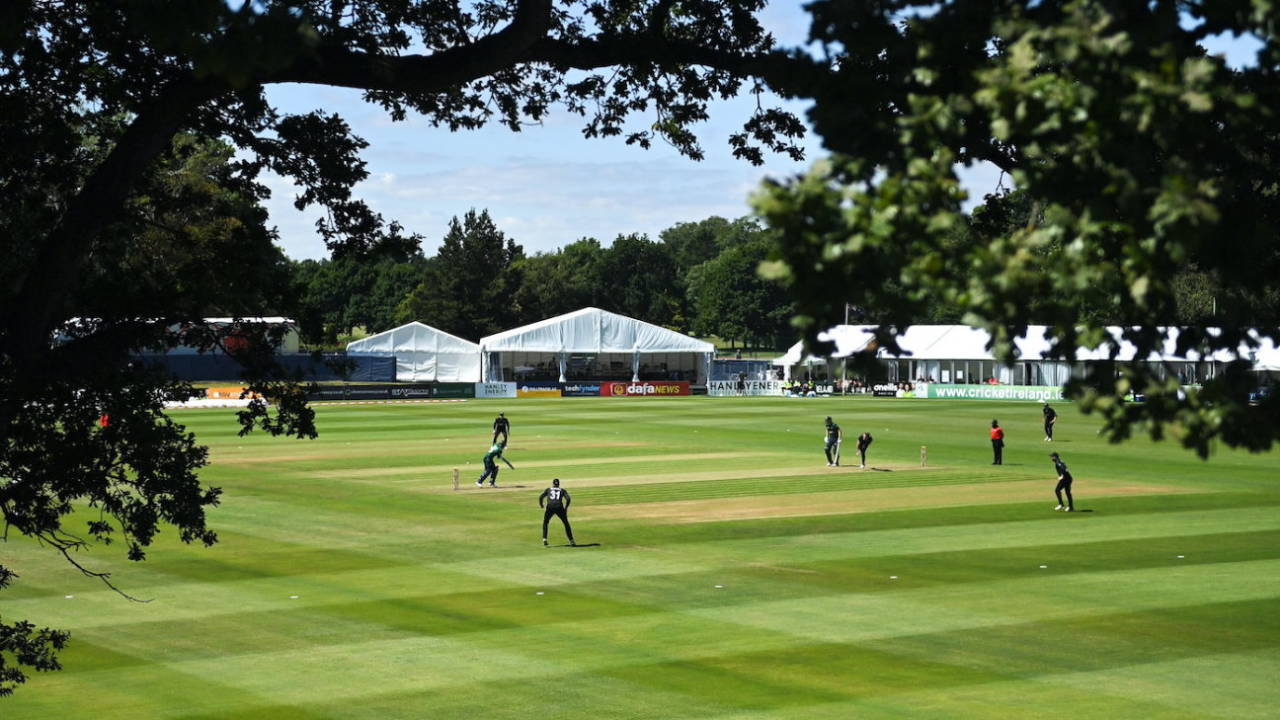Slow over-rate penalty - extra fielder inside circle to be introduced in ODIs too
The ICC's changes will also destigmatise the run-out of the non-striker for backing up - "Mankading" - by moving it from "unfair play" to "run-out"
The penalties would be applicable after the ODI Super League ends next year • Sportsfile/Getty Images
ICC 'looking at in-game penalties for Tests' in the next WTC cycle
Nepal awarded five penalty runs after UAE's Sharafu uses saliva to shine the ball
Four, not five fielders allowed outside inner circle for slow over rate in T20Is
MCC moves to de-stigmatise non-striker run-outs
MCC shifts from batsman/batsmen to batter/batters
- A batter's movement will be restricted to within the pitch, or the delivery will be called dead. "This is restricted so as to require some part of their bat or person to remain within the pitch," the ICC said in a statement. "Should they venture beyond that, the umpire will call and signal dead ball. Any ball which would force the batter to leave the pitch will also be called no ball."
- "Unfair and deliberate movements" by the fielding side while the bowler is running in will be penalised. "Any unfair and deliberate movement while the bowler is running in to bowl could now result in the umpire awarding five penalty runs to the batting side, in addition to a call of dead ball."
- The ICC's changes, like the MCC's recommendations, will also destigmatise the run-out of the non-striker for backing up - commonly known as "Mankading" - by moving it from the "unfair play" section to the "run-out" section.
- Bowlers will not be allowed to throw the ball at the striker's end before completing the delivery. "Previously, a bowler who saw the batter advancing down the wicket before entering their delivery stride, could throw the ball to attempt to run-out the striker. This practice will now be called a dead ball".
